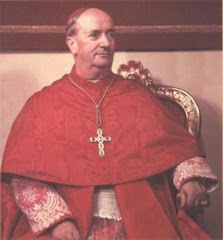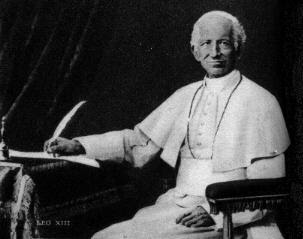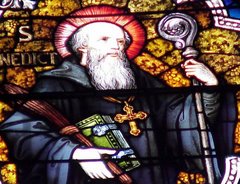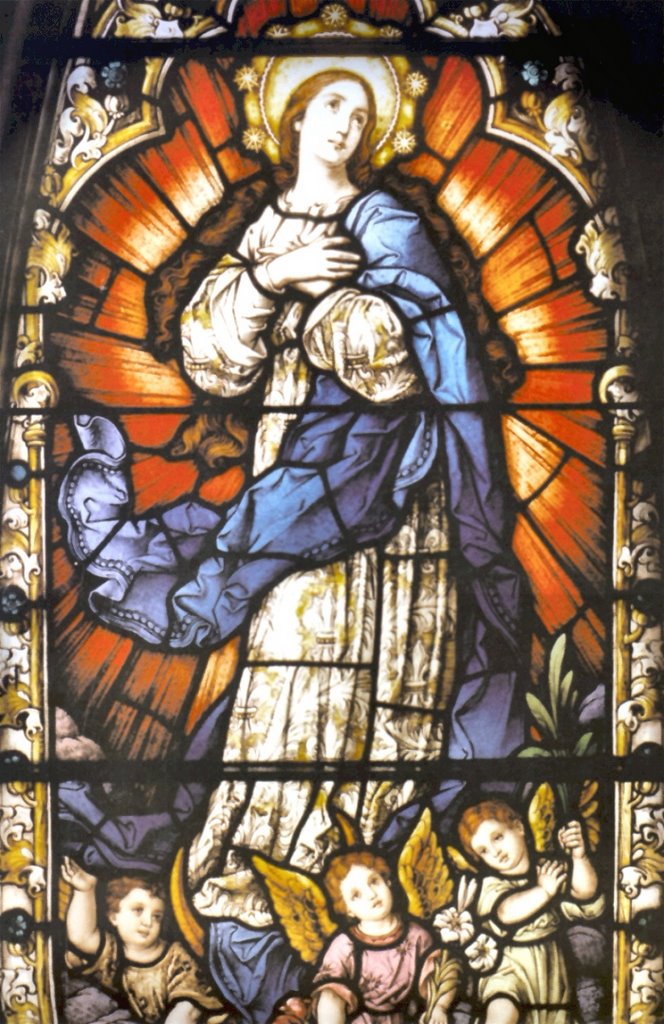The following excerpt is offered to further elaborate the classic doctrine of a third state, whence a soul may find itself, contingent on the circumstances of life, when the state of heaven nor hell can not have been justly deserved, for souls that may not have been capable of meriting either of the former, namely unbatized infants who pass on prior to the age of reason. It does not serve to advance a comprehensive treatment of the subject, however, I believe that it is a good read.
- Excerpt from "Limbo: or, An apology for purgatory and prayers for the dead; being the sequel to "the state of the blessed dead" by John Stewart M'Corry, D.D.
"To demonstrate what is here advanced, let us, first of all, scan the pages of the Old Testament. We shall there find abundant evidence corroborative of our position, which necessarily presupposes the belief of a middle state. For, be it observed, and let it be constantly borne in mind, that during the period of the old law, none ascended into heaven, 'the way of the holies,' as the Apostle says, ' being not yet made open.' Christ Himself was to dedicate that new and living way,' and begin the entrance in His own person, and by His passion and death to unlock the gates which had been closed against Adam, and all his posterity : ' He alone was found worthy to open the seals and to read the book.' Hence the language used in the Old Testament with regard to even the best of men is, that dying, they went down ad inferos, or ad infernum the lower hell so that they descended not to the grave, which received only their bodies, but ad inferos, ' into hell' the common receptacle for their souls. As exemplifying our meaning, let us bring a few instances in point.
We read, in the book of Genesis, that Jacob, while lamenting the loss of his son Joseph, whom he thought a wild beast had devoured, cried out in the bitterness of his grief, ' I will go down to my son into hell mourning.' The royal Psalmist also makes continual allusion to such a belief. In one of his Canticles he declares, ' Thou wilt not leave my soul in hell ;' and in another he exclaims, ' Thou hast delivered, Lord, my soul from the lower hell;' and again, he asks, ' Shall he deliver his soul from the hand of hell ?' Now, that the hell mentioned here cannot be the abode of Satan and the wicked spirits, is indubitably certain ; since it is incredible that Jacob could have supposed that the soul of his young almost infant son, Joseph, had been consigned to that dungeon. And David would neither have said, ' Thou wilt not leave my soul in hell,' had it been the hell of the damned ; since out of that dreadful region there is no coming forth ; nor would he have spoken of his soul's deliverance from the ( lower hell,' unless he believed that there was a ' lowest hell.
St. Jerome, speaking of the Patriarchs and Prophets, says, If Abraham, Isaac, and Jacob were in hell, who were in the kingdom of heaven ?' Again, he writes, ' Before the coming of Christ, Abraham was in hell ; after His coming, the thief was in Paradise. ' Lest it, then, might be urged that Lazarus, being in Abraham's bosom, beheld the rich glutton afar off in hell, and that therefore both Abraham and Lazarus seem to have been in heaven, the same holy Doctor dilutes entirely the difficulty by observing, that these also were in hell, but in a place of rest and refreshment ; and therefore at an immense distance from the wretched glutton who lay in torments in the lowest hell the hell of the damned....
Moreover, there is a passage in the Book of Ecclesiasticus which seems to harmonise with our ideas of a middle state. In chap. vii. v. 37, we read, ' And restrain not thy favour from the dead.' Now, we may be permitted to ask, what favour is this, which can be conferred upon the dead? It is to no purpose, in good sooth, to praise them it is no favour to erect a monument to eternise their memory, since they receive no possible advantage the only favour is the suffrages which the living offer up in their behalf. The learned commentator, Estius, in his Scriptural Annotations, explains the citation in this sense, and gives it as a probable opinion that Ecclesiasticus recommended prayers and oblations for the dead a practice very prevalent among the Jews, in opposition to the heresy of the Sadducees, who denied the resurrection. It would appear that Ecclesiasticus was contemporary with the Maccabees, and the writings of the latter serve to throw an additional light upon the passage in question, thereby corroborating this interpretation. Now, no argument could possibly be more luminous, or cogent, in attesting the Catholic dogma of a middle state, than what is derived from the second book of the Maccabees. We there read that the valiant Judas Maccabeus, 'making a gathering, fice to be offered for the sins of the dead, thinking well and religiously concerning the resurrection It is therefore a holy and wholesome thought to pray for the dead, that they may he loosed from their sins.' Here is an unquestionable proof of the practice of praying for the dead, under the old law, by God's chosen people. From this extract, we have the most minute and circumstantial evidence that the custom of praying for the dead obtained among the Jews for more than a century and a half anterior to the coming of our blessed Saviour ; that such a custom was not confined to any particular sect, but was practised by the whole Jewish nation, being observed by the people as well as by the priesthood
an especial sacrifice being appointed for that purpose to be offered up in the temple of Jerusalem ; and, finally, that this sacrifice, and these supplications, were expiatory, since the end for which they were instituted was, that the dead might be loosed from their sins. The Jews therefore believed, as is obvious from their practice, that the dead could be succoured by the prayers of the living, and, to use their own language, 'be loosed from their sins.'
- Excerpt from "Limbo: or, An apology for purgatory and prayers for the dead; being the sequel to "the state of the blessed dead" by John Stewart M'Corry, D.D.















